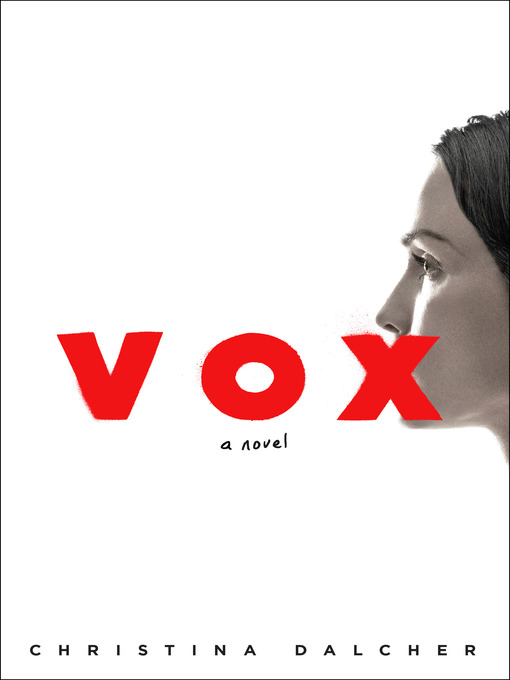“[An] electrifying debut.”—O, The Oprah Magazine
“The real-life parallels will make you shiver.”—Cosmopolitan
Set in a United States in which half the population has been silenced, Vox is the harrowing, unforgettable story of what one woman will do to protect herself and her daughter.
On the day the government decrees that women are no longer allowed more than one hundred words per day, Dr. Jean McClellan is in denial. This can't happen here. Not in America. Not to her.
Soon women are not permitted to hold jobs. Girls are not taught to read or write. Females no longer have a voice. Before, the average person spoke sixteen thousand words each day, but now women have only one hundred to make themselves heard.
For herself, her daughter, and every woman silenced, Jean will reclaim her voice.
This is just the beginning...not the end.
One of Good Morning America's “Best Books to Bring to the Beach This Summer”
One of PopSugar, Refinery29, Entertainment Weekly, Bustle, Real Simple, i09, and Amazon's Best Books to Read in August 2018
“[An] electrifying debut.”—O, The Oprah Magazine
“The real-life parallels will make you shiver.”—Cosmopolitan
Set in a United States in which half the population has been silenced, Vox is the harrowing, unforgettable story of what one woman will do to protect herself and her daughter.
On the day the government decrees that women are no longer allowed more than one hundred words per day, Dr. Jean McClellan is in denial. This can't happen here. Not in America. Not to her.
Soon women are not permitted to hold jobs. Girls are not taught to read or write. Females no longer have a voice. Before, the average person spoke sixteen thousand words each day, but now women have only one hundred to make themselves heard.
For herself, her daughter, and every woman silenced, Jean will reclaim her voice.
This is just the beginning...not the end.
One of Good Morning America's “Best Books to Bring to the Beach This Summer”
One of PopSugar, Refinery29, Entertainment Weekly, Bustle, Real Simple, i09, and Amazon's Best Books to Read in August 2018








